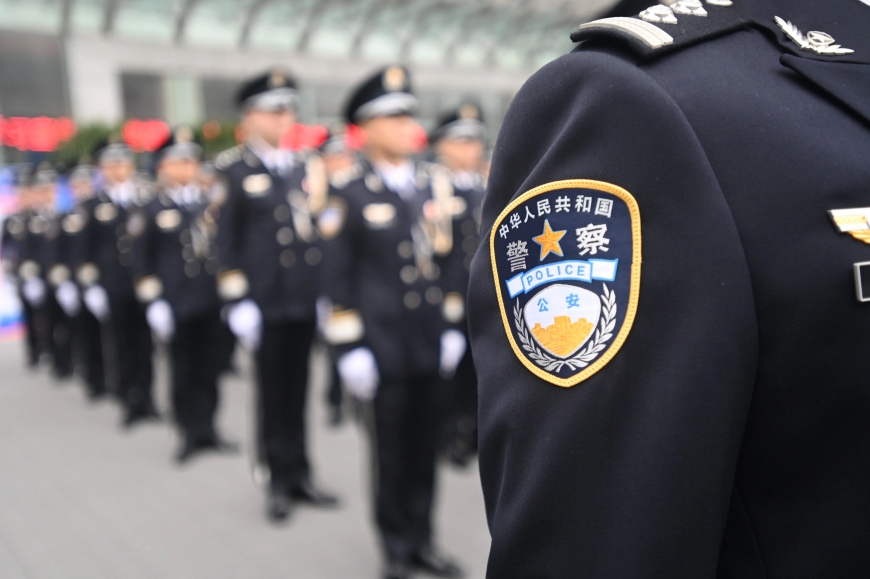China Expands Global Influence by Training Thousands of Foreign Law Enforcement Officers
China has announced a significant expansion in its efforts to train foreign law enforcement officers, as part of a broader strategy to reshape global security and promote what it describes as a "more fair, reasonable, and efficient" world order. The initiative, announced by China's Minister for Public Security, Wang Xiaohong, at an annual global security forum on Monday, is the latest move in the country’s ambition to position itself as a leading force in international security.

China has announced a significant expansion in its efforts to train foreign law enforcement officers, as part of a broader strategy to reshape global security and promote what it describes as a "more fair, reasonable, and efficient" world order. The initiative, announced by China's Minister for Public Security, Wang Xiaohong, at an annual global security forum on Monday, is the latest move in the country’s ambition to position itself as a leading force in international security.
Speaking in the eastern city of Lianyungang, Wang emphasized that China will continue to send police consultants to nations in need, providing training to bolster their law enforcement capabilities. Representatives from 122 countries, regions, and international organizations such as Interpol attended the forum, reflecting China’s growing influence in global security matters.
This announcement builds on China's Global Security Initiative (GSI), launched by President Xi Jinping in 2022. The GSI aims to reform global security governance, proposing China as a mediator for "durable peace" and enhanced international security cooperation. The initiative has been linked to China's diplomatic efforts, such as brokering agreements between Iran and Saudi Arabia and proposing peace initiatives for the Ukraine war. Analysts see the GSI as a vehicle to challenge the current US-dominated global order.
China has already trained 2,700 foreign law enforcement officers over the past year, and Wang's speech suggests that number will rise significantly. Notably, Beijing recently committed to training 1,000 more officers for African countries following a China-Africa forum, focusing on ensuring the safety of cooperation projects tied to China’s foreign investments, including the Belt and Road Initiative (BRI).
While the specifics of the countries or regions receiving the expanded training remain unclear, the initiative is part of China’s wider strategy of forging bilateral security agreements with developing nations, particularly in Africa and the Indo-Pacific. For example, last year’s agreement with the Solomon Islands on "law enforcement and security matters" sparked concern among the US and its allies in the Pacific, raising fears of a growing Chinese military presence in the region.
China has also been strengthening ties with Central Asian countries. On Tuesday, Wang addressed the China-Central Asia Summit on public security, where he met senior officials from five nations, agreeing to enhance cooperation in areas such as counter-terrorism and transnational crime.
However, the expansion of China’s law enforcement training programs has drawn criticism from human rights groups. They argue that these programs often promote authoritarian tactics modeled on Communist Party governance and are heavily focused on safeguarding Chinese commercial interests abroad, particularly those connected to the BRI. There are concerns that such training may prioritize regime security over human rights, potentially destabilizing local governance in vulnerable regions.
Despite these concerns, China continues to push its agenda, with Wang noting that Beijing will offer at least 5,000 training opportunities over the next five years to help other developing nations address global security challenges. As China expands its global security footprint, its growing influence on law enforcement and governance is poised to have a lasting impact on how security issues are managed in various regions around the world.













































